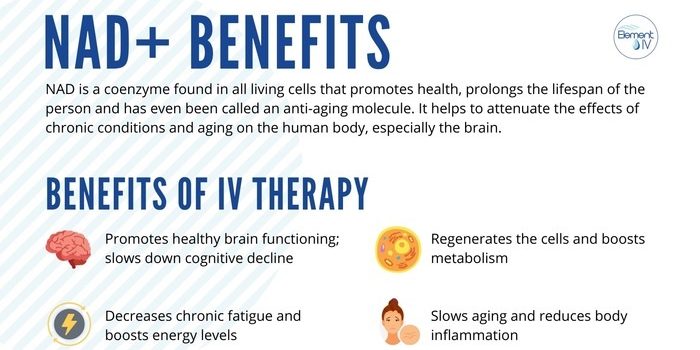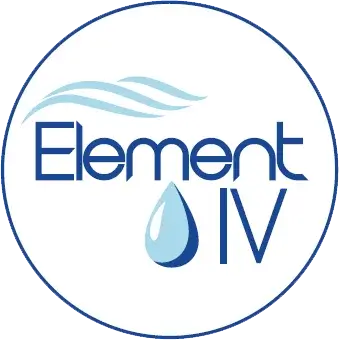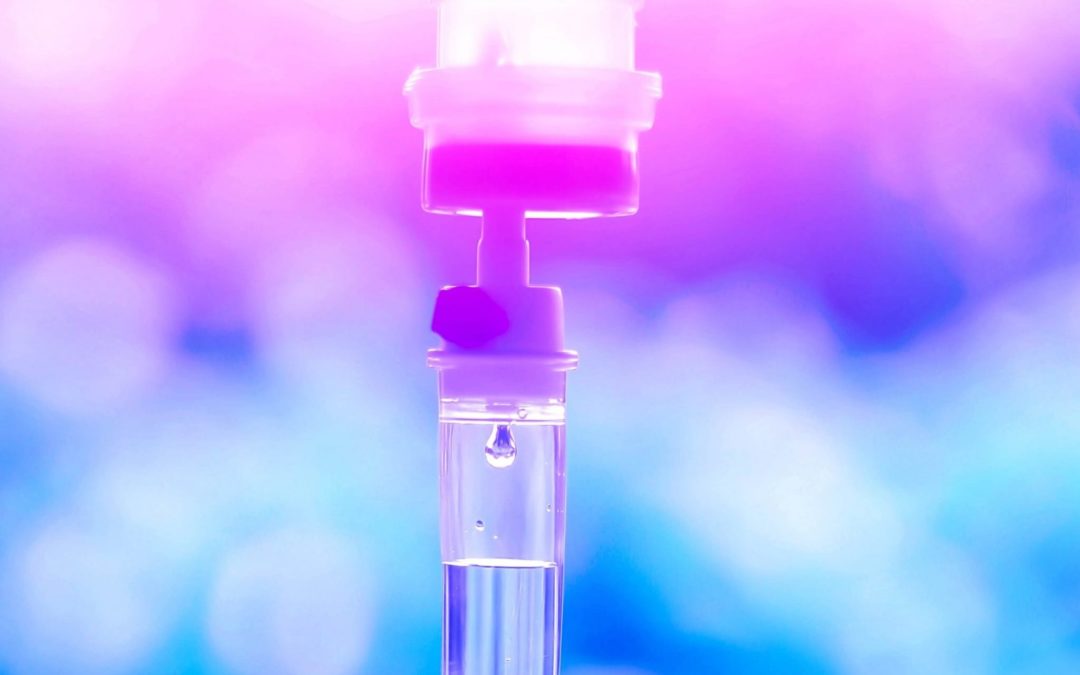
Are you missing out on the benefits of NAD+?
Are you missing out on the benefits of NAD+?
Part1
What is NAD+?
Nicotinamide adenine dinucleotide is a coenzyme with two forms (an oxidized and reduced form). In its oxidized form, it is known as NAD+, and in its reduced state, it is known as NADH.
NAD (nicotinamide adenine dinucleotide) is a coenzyme found in all living cells. It promotes health and prolongs the lifespan of the person, and it has even been called an anti-aging molecule. This potent molecule has the potential to deliver therapeutic opportunities. It helps to attenuate the effects of chronic conditions and aging on the human body, especially the brain.
How NAD+ Benefits the Body?
NAD+ acts as a helper molecule because it activates and helps produce molecular reactions by binding to essential metabolic enzymes in the body. For example, there are proteins in the body called sirtuins (responsible for carrying out many biological processes) requiring this coenzyme for proper functioning.
Biological Processes Requiring NAD+
- Extracting energy from nutrients (cellular respiration)
- Gene expression
- Epigenetic and posttranslational modifications
- Regulating mitochondrial function
- Protecting and Repairing DNA
- Preservation of chromosomal integrity
- Calcium signaling
In common words, NAD+ is the essential molecule for living. But, our bodies get deficient with this molecule as we get older. It is the reason people begin to feel the effects of aging and become more susceptible to age-related illnesses as age increases. One way to supplement
NAD+ in the body is through IV therapy. It is a holistic way to help the body fight against diseases and aging to make a person feel healthier and more youthful.
What Is NAD+ IV Therapy?
Element IV Therapy offers the option to receive intravenous infusions of various vitamins and supplements. These infusions promote certain aspects of health or increase the overall feeling of wellness. Infusing the body with NAD+ through an IV drip ensures 100% bioavailability from the molecule. There are also oral supplements of NAD, but it is difficult for the body to absorb NAD+ this way, and results are not guaranteed. IV therapy is a safe and efficient way to supplement the coenzyme in the body.
NAD+ IV Therapy Benefits
- Promotes healthy brain functioning slows down cognitive decline
- Decreases chronic fatigue and boosts energy levels
- Regenerates the cells and Boosts metabolism
- Slows aging and reduces body inflammation
Benefits of NAD+ Infusion Therapy for your Brain
This overall improvement in mental sharpness contributes to their general feelings of wellness. The most noticeable effect of getting old is a decrease in cognitive function. A simple NAD+ IV infusion improves neuron function by regenerating and protecting them against damage. It causes increased mental cognition, a higher ability to focus, and enhanced memory function.
NAD+ Infusion Therapy Boosting Energy Levels and Metabolism
The coenzyme infusion administered IV helps provide energy to the cells of the body at a molecular level and contributes to a healthy metabolism. A good functioning metabolism is vital in dealing with weight management and other health issues.
Candidate for NAD+ IV Therapy
A person suffering from fatigue, reduced energy levels, sluggishness, and mental fogginess may benefit from this type of IV treatment at Element IV Therapy. Replenishing the NAD+ levels in the body can drastically decrease these feelings and provide additional benefits. People suffering from chronic conditions and certain age-related illnesses are also excellent candidates for these infusions. It may also be beneficial for healthy people, e.g., it may help athletes enhance their performance and endurance. It also speeds up the recovery times after vigorous exercise or an injury.
Contact Element IV Therapy to discuss a plan for your personalized NAD+ treatment.
Bottomline
Nicotinamide is a beneficial therapeutic molecule because it plays essential roles in many different biological processes. It can be used in various ways to maintain healthy organ functioning and neurological systems in humans. Call us to schedule your Element Anti-aging NAD + infusion today







